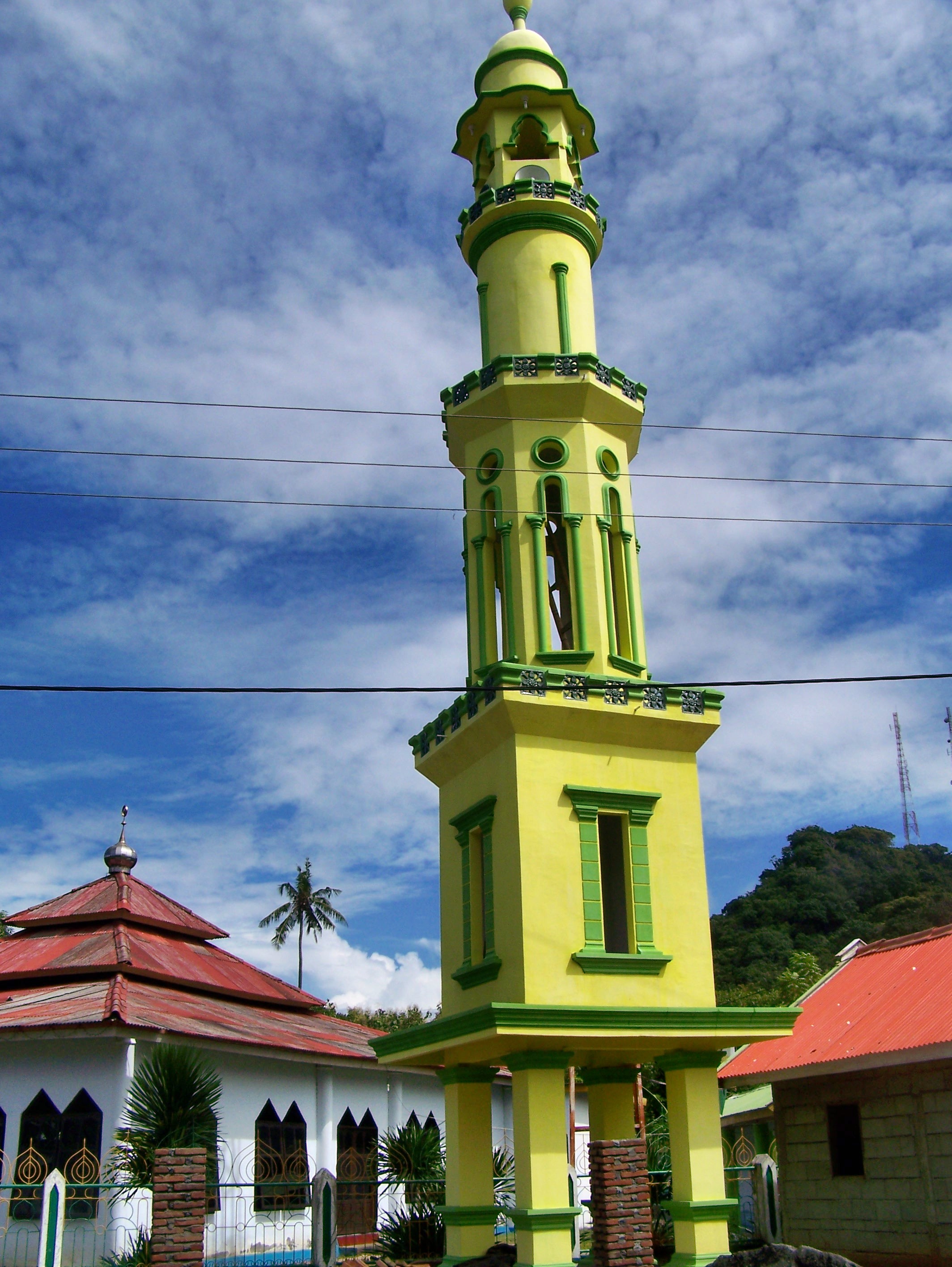
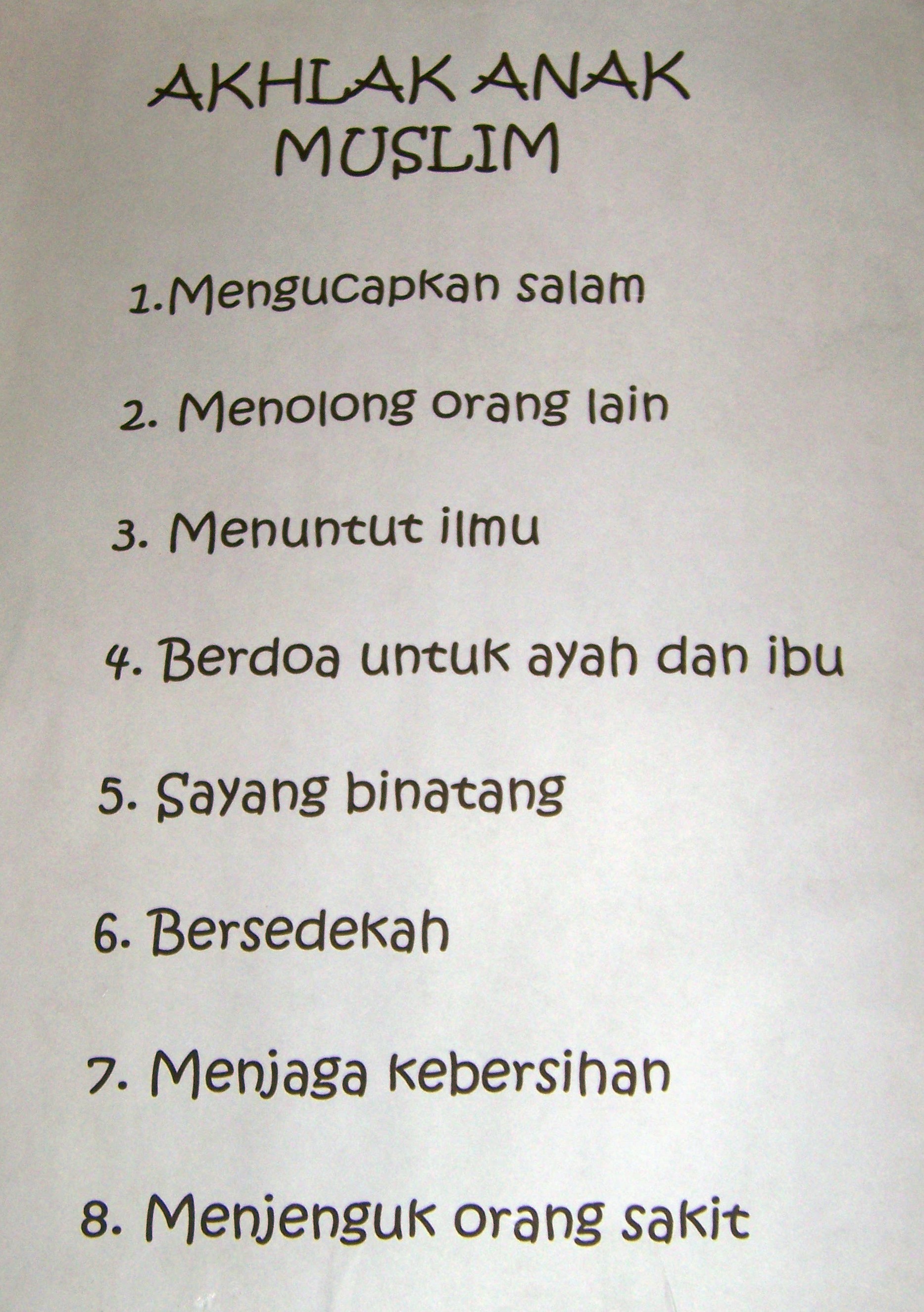
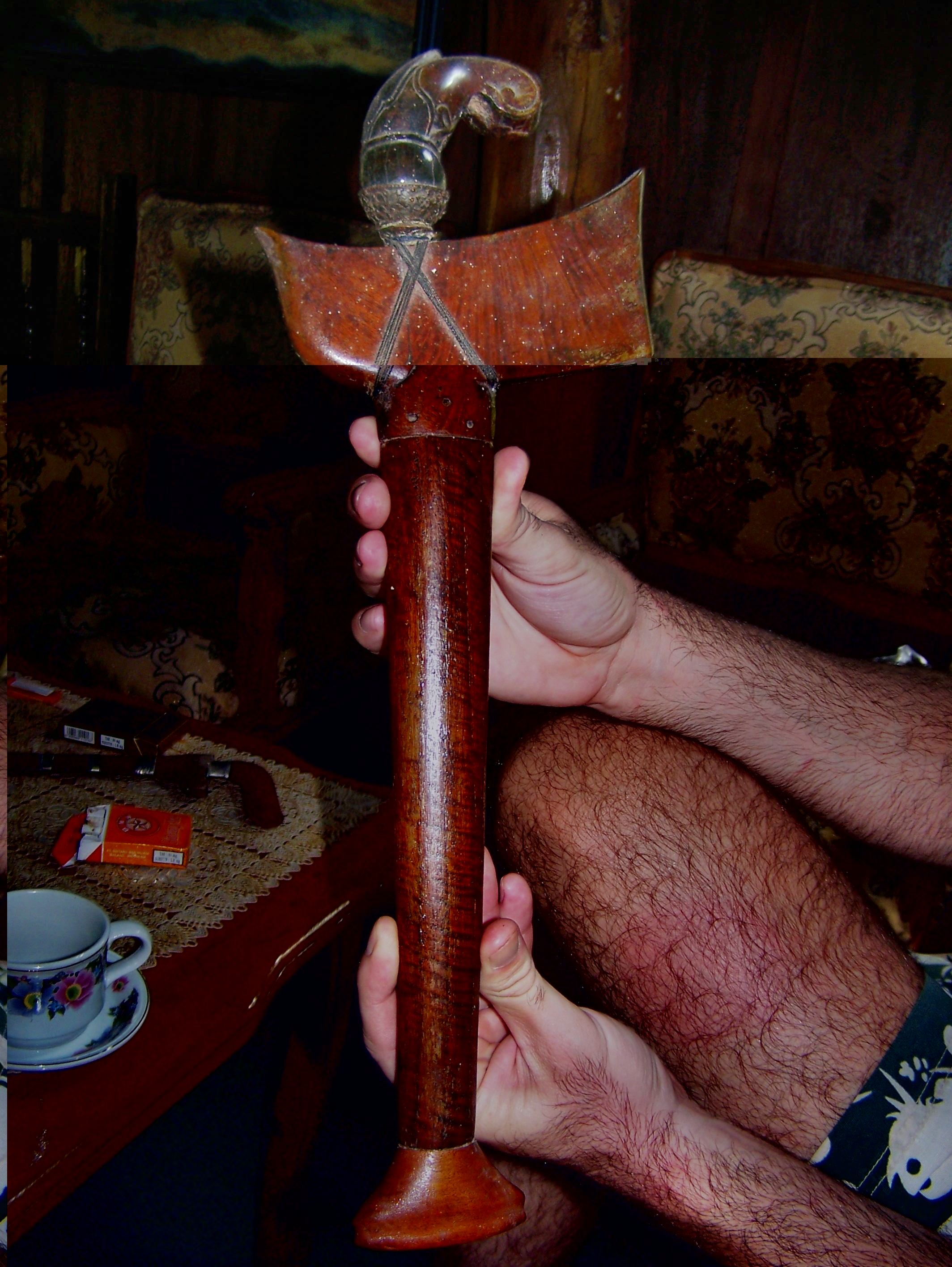
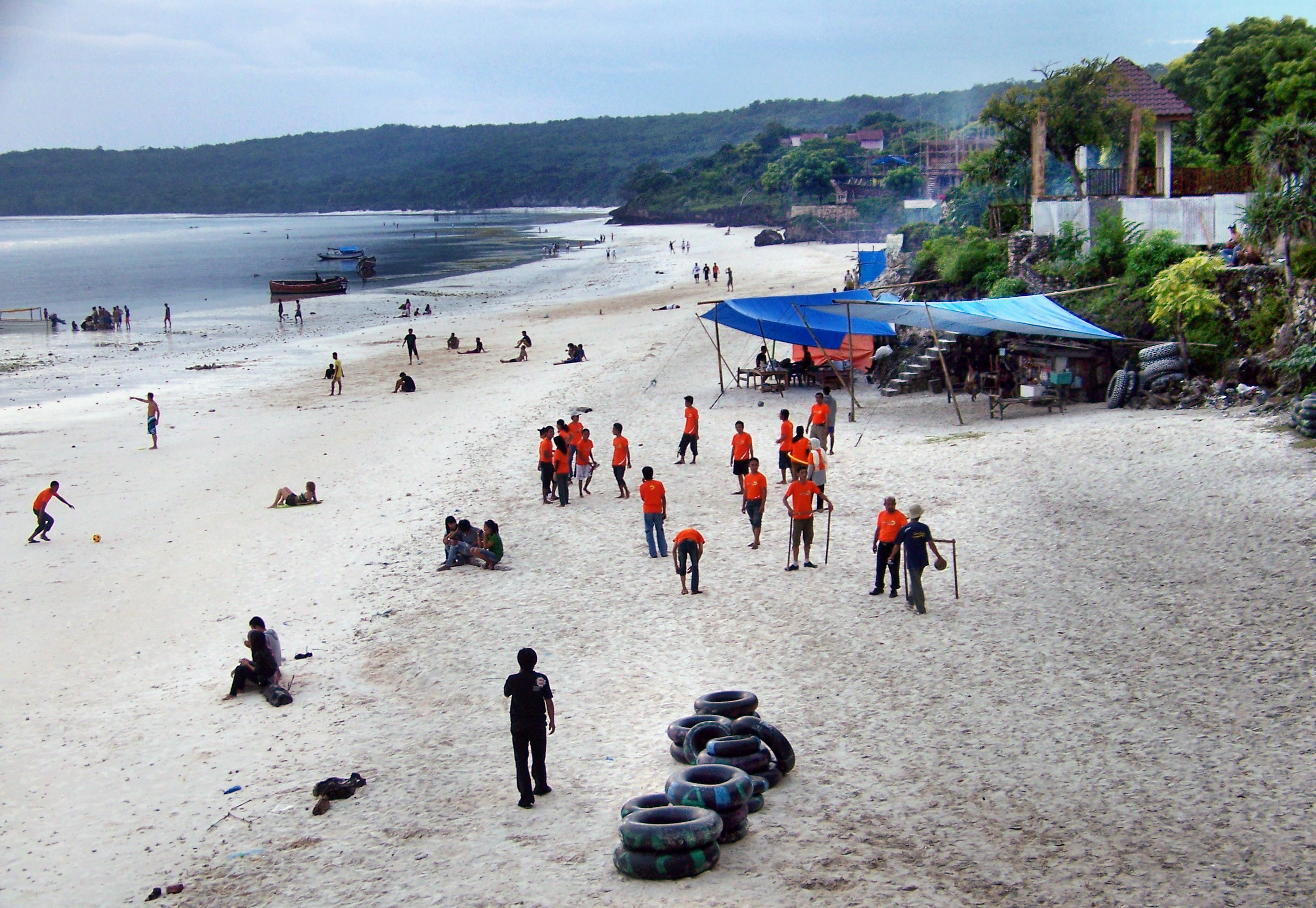
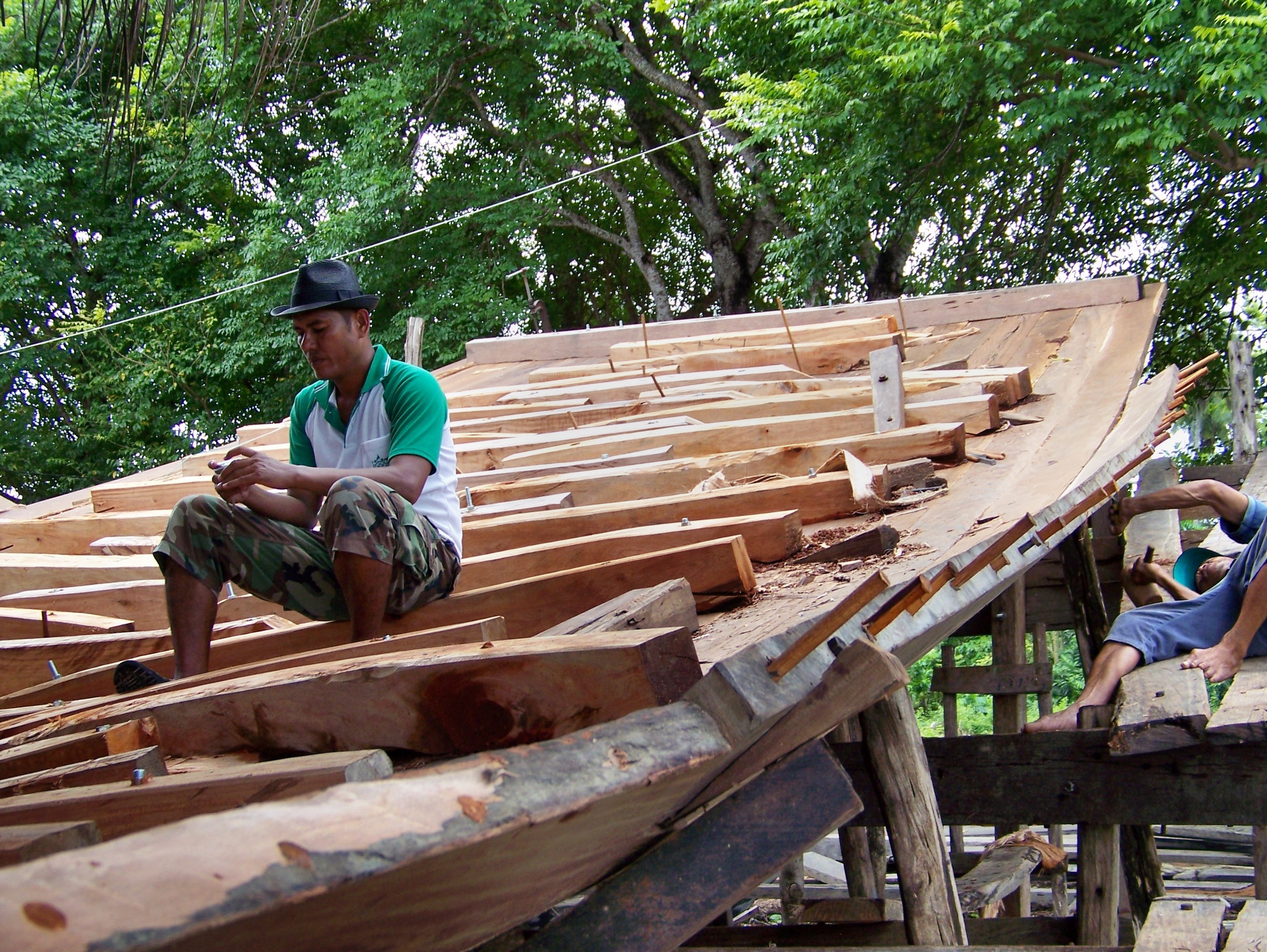
By John Michael Gorrindo





Indonesian Rantau
Chapter 1- Tanah Beru: “Of Magical Dreams and Corruptive Influences”
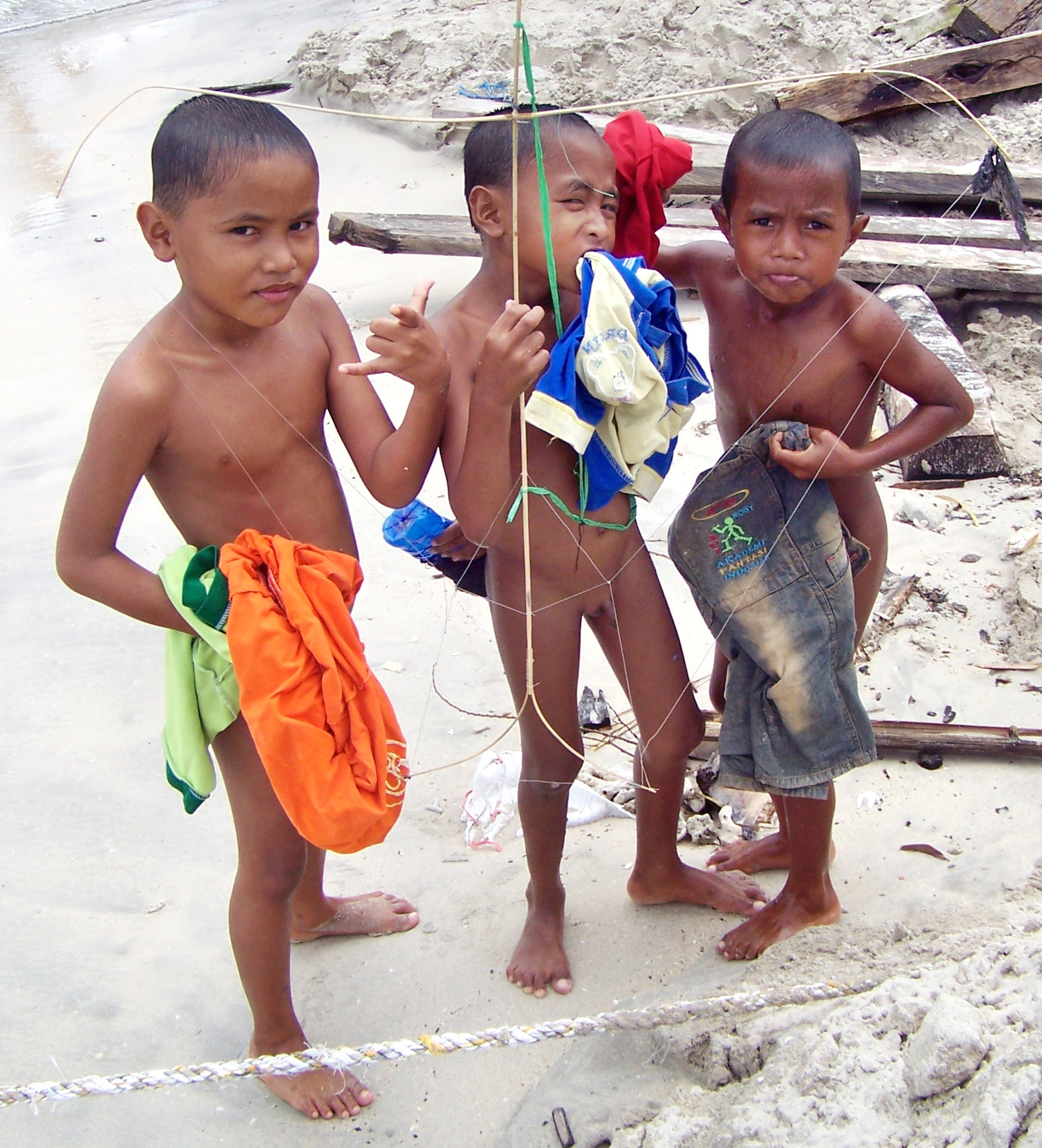 In 1978, my music studies at the University of California Santa Cruz proved fateful. Plans were to study music composition and what was then called “electronic music.” Commitments followed; I earned a Bachelors degree in 1980. But it was my involvement in the music department’s Javanese gamelan program that sewed the seeds for what eventually would become an obsession later in life- the world’s greatest archipelago, Indonesia.
In 1978, my music studies at the University of California Santa Cruz proved fateful. Plans were to study music composition and what was then called “electronic music.” Commitments followed; I earned a Bachelors degree in 1980. But it was my involvement in the music department’s Javanese gamelan program that sewed the seeds for what eventually would become an obsession later in life- the world’s greatest archipelago, Indonesia.
My gamelan teacher was an ever-smiling young man named Undang Sumarna. The music and its attendant sounds and structures were compelling, and the beauty of the gamelan orchestra’s instruments seductive. But it was how Undang taught the class that most drew me into the world of Indonesia. Gamelan instruments consist in main of metallophone and xylophone type instruments, and are built low to the ground and rest upon the floor. This requires the player to sit before the instrument, mallets in hand, and in a cross-legged position.
As the gamelan style Undang taught was built upon interlocking, repetitive motivic phrases, he would simply move about the orchestra, squat his slight body down in front of each player, and borrowing the player’s mallets, play them their musical part from the other side of the instrument. In other words, he played each part for each instrument to each player from a physical vantage point that forced him to play the musical phrases upside down and backwards. And all the while, of course, he smiled broadly, flashing a set of perfect teeth. After his rounds, he would return to sit with his hand drums which were located in the heart of the orchestra, all other instruments arranged as a rectangular perimeter surrounding him. From that central spot, he would conduct the music and propel us along by means of his drumming.
If something cannot be written about or discussed, it rarely has a niche in the world of academia. But Undang proved the exception. I never once heard him use verbal language in the process of teaching in two years of rehearsals. Gamelan is at once an aural and kinetic folk music tradition, and the less said the better. Plop a three year old in your lap, put mallets in its hands, grab hold of the wrists, and repeat the sequence of movements enough times while playing the melody on the metal or wooden keys laid out before the child, and both muscle and tonal memory will collude to teach that child the music.
Though I was wholly ignorant of Indonesian culture and history, I instinctively knew there was something magical at work in all of this. As our gamelan ensemble improved, Undang brought in dancers and shadow puppeteers whom we would accompany as their art forms provided narrative for what was now a collaborative performing art. The dances and puppeteering were vehicles for communicating ancient, epic tales from such religious scriptures as the Hindu Ramayana.
How could it be that Hindu lore was part of a musical tradition that blossomed in Java, an island of 125,000,000 people, ninety percent of whom are Muslim? I didn’t take the time to answer that question for myself at the time, but carried it with me as I moved on. I left the Santa Cruz campus in June 1980, married, raised a family, and taught mathematics and music over the next twenty-odd years. A growing spiritual emptiness accompanied the elapsing years, and I would at times seek escape by reliving memories of the glimmers of esoteric magic I had experienced in those two years playing Indonesian gamelan music.
In the late 1980’s I experienced another happenchance-related discovery, that of the Blair brothers’ five part PBS television production, “The Ring of Fire.” It chronicled the ten years the two Englishmen had spent traveling throughout the Indonesian archipelago. A romanticized and truth-stretching tale it told, but in spirit, the series had put a concrete finger on the pre-historic powers of the supernatural that still existed throughout Indonesia, and resonated with my experiences in Undang’s gamelan class. At was at this point that I my obsession began in earnest.
After an acrimonious divorce, and even more disastrous collapse of an on-the-rebound relationship, I would nurse my insomniac self to sleep while watching these five video installments produced by the two brilliant, eccentric English brothers whose initial seed money for their project had come from their solicitations to, of all people, Ringo Starr and Apple Records.
Finally, in the summer of 2004, I managed to spend one month traveling in the Indonesian islands of Bali, Lombok, and Java. Returning to California, I barely survived one more year as a private school mathematics teacher, saved my money avariciously, had the joy of attending both my children’s college graduations, and now free of financial obligations, decided to seek out the truth of present day Indonesia as a traveler over a several month period. The initial seeds had been planted some twenty-seven years previous, and now they had germinated into what I hoped to be a full-blown adventure.
The principalities of the universe’s power reside in the invisible according to many of Indonesian’s multitude of religious persuasions, and it was the archipelago’s “access” to that invisible cosmos that drawn me most powerfully to spend months alone traveling there. But it was the mundane world of day-to-day exigencies faced by the modern-day traveler that I was first required to face.
As the global war on terror was alive and well in the Indonesia of 2005, many of my American acquaintances certainly thought my plans for travel were ill-advised. After all, the posted travel warnings on the U.S. Department of State’s website blaringly discouraged any American from traveling to Indonesia. Hadn’t the horrific bombing in Bali’s Kuta Beach tourist resort killing over two hundred patrons given me pause?
Weren’t a coterie of terrorist thugs planning even more murder and mayhem, further targeting tourists traveling in Indonesia?
The answer to both these questions was an emphatic “yes,” but I held an accommodating perspective on these fear-based issues, rooted in both research and experience. First and foremost, it struck me that there was no safe haven remaining in the world, and I couldn’t believe that any place in America could be rationally considered “safer” than anywhere else I may travel, whether it be in Indonesia or any other country. 9-11 was not the only dispelling example. Hadn’t the United States so far failed to protect its chemical plants and oil refineries, just for starters? Homeland Security had a long row to hoe, and America still seemed like the biggest terrorist target going. Another Bhopal occurring in America’s “chemical alley” seemed as probable as another Kuta Beach bombing.
To live one’s life to the fullest is a risk in any case, whether it’s eating chips alone while watching football in the comfort of the White House, or walking through the lobby of Jakarta’s Hilton. Common sense told me both danger and safety lurked everywhere and in near equal measure. One simply needed to avoid a few hot-spots, no matter the country.
My primary concern in traveling to Indonesia focused on visa restrictions. A U.S. citizen could apply for a two-month visitor’s visa in an Indonesian Embassy prior to leaving the states, or better still, a social visa which was good for up to six months if a letter of sponsorship could be obtained from an Indonesian citizen or organization. Not having sponsor, it would be necessary for me to find one once in Indonesia. Garnering a visitor’s visa was easy enough, but my plans were to live in Indonesia for possibly one year, and clearly my first challenge upon arrival was to find a sponsor. Otherwise, I would be forced to leave the country every 60 days, apply for a visitor’s visa in an Indonesian Embassy in some nearby country, hope it was granted, and then reenter Indonesia. The logistics and costs involved plagued every long-term traveler to Indonesia, and there were internet testimonials aplenty to that effect as could easily be found on ex-patriot websites.
The Blair brothers had overstayed their visas during the 1970’s and somehow managed to dodge too much trouble, but such neglect would probably land me in an Indonesian prison in 2005. A lot was at stake. If I were to live in Indonesia, I would have to do so in some officially sanctioned capacity.
Acquiring a sixty day visitor’s visa from San Francisco’s Indonesian Embassy, I flew into Bali’s capital city, Denpasar, on June 14, 2005. Immediately, I looked up a gamelan teacher who had given me a couple of lessons the summer before, and explored the possibility of studying Balinese gamelan in Denpasar’s government operated arts university, ISI. Upon visitation, I was granted a tour of the campus, inspected its music department, and chatted with a few students. A young Balinese woman who studied English in Denpasar’s Udayana University helped find me a small room to live in close to the ISI campus as well. The only problem with living there would be mosquitoes and malaria, as it was located next to a rice field.
The pathway was clear, but my heart was not in it. Somehow it was all too easy, and didn’t feel right. Actually, I was surprised by my reaction, as I thought the prospects of studying Balinese gamelan would be a good fit, as this had been my tentative plan all along. I had made several university student friends in Denpasar the summer of 2004, connections made as a result of hours of chatting online in Yahoo messenger’s Indonesian chat rooms prior to my initial trip to Indonesia. I had carefully cultivated the grounds upon which I could create a productive life in Bali, but when squarely faced with the opportunity, I turned away.
The Bali of 2005 had plenty of magic yet to be found in its spiritual and arts culture, but it was so overrun by tourism, and commercial development that I couldn’t justify spending months of my time there. The world’s greatest archipelago still offered remote, untrammeled corners where English wasn’t spoken, and traditional life still prevailed. Once back in Indonesia, I decided areas less frequented by tourists held more interest. The days were passing by, and I had to devise another plan in short order.
Paring down my traveling load to one backpack, I stored my books and guitar at a friend’s boarding room in a Denpasar banjar, and struck out for the rough and tumble city of Makassar, South Sulawesi. Sulawesi, formerly known as the Celebes, is one of the world’s most exotically shaped islands as it resembles an orchid. Its several land arms are like so many long, spindly orchid petals that stretch out and apart from each other as they splay out on top of the many surrounding tropical seas.
My indefatigability as internet researcher had produced one gem connection for me in Makassar (officially known as Ujung Pandang). His name was Mursalim, but he went by the nickname of “Dodo.” All things being equal, “Dodo” shares the same connotations both in America and Indonesia and indeed refers to the intellectual capacity of the now extinct flightless island bird. But Dodo was anything but stupid. A Bugis who had lived all his life in the teeming metropolis of Makassar, he possessed a million dollar smile, a winsome personality, and the gift of the gab. For a dozen years the forty-three year old Dodo had offered his Makassar home as a homestay to international travelers, and both his accommodations and tor guide services had been trumpeted across the blog pages of the “Thorntree,” which is Lonely Planet’s internet-based traveler’s forum. One Australian had even constructed a home page for Dodo, entitled “Dodo, the Penman of Makassar.” Dodo’s longstanding hobby was to collect writing pens, hundreds of which he had on display in glassed cases throughout his home. The man was simply an Indonesian original.
Upon my arrival in Makassar, my thoughts turned towards the possibility of serving as a volunteer teacher. After a brief stay in Dodo’s homestay, I traveled to the Torajan highlands a day’s travel north, and after three days of touring the fabled traditional houses and ossuaries of the Torajans where ancestral skeletal remains lie stacked like cord wood inside caves and carved-out stone tombs, I returned to Dodo’s for some serious planning.
Dodo, whose command of English was formidable, suggested I travel to Pantai Bira, a remote seaside Bugis village where most villagers still lived in a traditional manner, but tourist facilities only recently developed would offer me reasonable room and board. If I were to live somewhere for several months, appropriate accommodations seemed necessary. Too removed a location would land me inside the confines of a village head’s own home with no way of knowing whether such arrangements in the long term could feasibly work. Dodo also suggested Bira’s children deserved some educational support.
Pantai Bira was fortuitously located on a cape surrounded by the Flores Sea, and long beautiful beaches ran along each cape leg. One beach was occupied by traditional Bugis house-on-stilts where the locals lived directly off the sea, and the opposing beach had been developed over the past twenty years as a tourist resort. Pantai Bira, or simply Bira, was remarkable both sociologically and geographically as it was a bifurcated world- a small society split into two distinct neighboring parts; one old and one new; each occupying one side of a rocky cape covered in a unique flora of lowland forest.
Dodo had recommended I stay at Riswan’s Guest House, a large, blue, two story structure that towered above the rest of its surroundings as it was built atop a hill overlooking the ocean. Riswan, still only a man of forty, had pioneered tourism on the tourist side of the cape in the mid- 1980’s when he had first convinced his parents to open their home to small streams of arriving tourists who had heard of Bira’s beaches and quality ocean diving potential. He then built an initial tourist bungalow, which eventually led to the construction of a set of bungalow cottages, and so on, until he had settled and developed his guest house on a prime piece of hill top real estate.
“Bahasa Indonesia” is Indonesia’s official language, and though my language skills were growing, I was clearly dependent upon finding an English-speaking Indonesian to help me realize my plan to become a volunteer teacher. With no institutional backing and completely ignorant of the Indonesian educational system, I suddenly found myself putting all my cards on Riswan’s table, asking for his help to make my plans come to fruition in Bira.
Riswan could speak English quite well, having learned from his constant contact with tourists over a twenty year period. Most immediately I realized that if anyone could help me, it would be my new friend, Riswan. He was a man of regal bearing, exceedingly intelligent, a masterful communicator, and cautious as well. Initially he did not know whether he could trust what I had to say, and whether helping me make connections within the local school district would be worth his time. Moreover, he did not want to be made look a fool amongst Bira’s villagers, or worse take on the potential liability of promoting the cause of a foreign stranger, however well self-represented, only to find out he was a narcotics dealer; or more likely- just a misguided dreamer.
Because Riswan spoke so forthrightly and directly to me as to the terms of his service, I trusted him implicitly. And Bira was part of a cash-poor region whose schools were run down and under-funded. I thought that maybe I could make a difference. Riswan’s own daughter attended the local elementary school, and he knew first hand a visiting teacher from the west could potentially do some good for the children. In these terms, Riswan eventually agreed to take the risk of helping me gain access to the local school system.
Never one to take the easy, well-trodden path, I dove into the murky waters of Bira’s educational establishment with Riswan as my advance man. But the connections forming were crystal clear and made some logical sense, however serendipitous and tangential in nature. Strangely, my journey could be traced back to the Blair brothers’ own inspiration. One of their original video installments of “The Ring of Fire” had in part taken place in Bira, back in the early 1970’s prior to the construction of Bira’s harbor, and certainly before the rise of tourism in the region. Being true romantic adventures, the brothers’ Indonesian travels had initially been inspired by Alfred Russell Wallace, the self-educated, nineteenth century English naturalist whose 22,000 kilometer, eight year expedition in Indonesia had quite independently led him to scientific discoveries that qualified him as co-inventor of evolutionary theory with Charles Darwin.
As described in Wallace’s “The Malay Archipelago,” a significant episode in his journey involved making passage from Makassar to Bira, and then onto distant Aru island in the Banda Sea aboard a Bugis’ sailing prow in search of one of the world’s most beautiful creatures- the fabled Bird of Paradise. It was the Blair brothers’ intent to fallow in Wallace’s wake, as it were; to retrace his passage aboard exactly the same type of sailing vessel which, in the early 1970’s, still plied the archipelago’s many seas, traveling east or west, according to the season and the attendant monsoon winds.
I remember watching with fascination that “Ring of Fire” segment showing Buginese shipwrights and carpenters repairing and building new sailing ships (called “pinisi”) in the shallow waters just off the glistening white beaches of Bira’s cape. Meanwhile, Bira’s “Kepala Desa” (village head) entertained his English guests during their lay-over, required to wait several weeks while the ship they had sailed in on from Makassar was repaired, and then loaded with cargo destined for trade in Aru, some 1500 kilometers away.
Riswan remembered the Blair bothers’ stay in Bira, as he had been a boy of maybe seven when they arrived. And so it was the dots could be connected- from Wallace, to the Blairs, and now to me.
But so much more had changed between the Blair brothers’ initial visit to Bira and mine of 2005 as compared to that of Wallace’s of around 1860 and the Blairs’ in the early 1970’s. Most significantly, the fabulous creation that was the sail-powered pinisi had disappeared, giving way to motorized ships, however similarly designed. Ship building, too, had all but vanished from Bira, once the archipelago’s premier shipbuilding port. Many Bugis men of Bira still made a living by fishing the waters off the cape, but few served as crewman aboard trading vessels whose home port was Bira itself.
In a brief span of thirty years, a five hundred year old way of life had simply vanished. In the face of this discovery, I felt sadness, but the pragmatic Riswan certainly shared no like sentiments. “Oh, life was so very hard then,” he instructed me. “A man who worked on a cargo pinisi would not be paid for his services until the ship had returned to Bira from the trading voyage. The profits were accounted for by the ship’s owner once the ship had made home port. Then a profit-sharing determined each crewman’s take, less the monies any crewman borrowed during the trip which was often over a year long. If a crewman was not careful with taking advances, he could come home to his family with nothing to show for a year’s hard labor. Then again he may not come home at all. Many ships sunk in stormy seas, or pirates raided them for their cargo and killed all on board. Often no news would accompany a ship’s loss. The ship simply never returned. Meanwhile, a crewman’s wife simply waited day after day, never knowing if her husband would ever return.”
After sizing me up for a few days, Riswan committed to helping me. Our first stop was the neighborhood elementary school where his seven-year-old daughter, Ningsih, attended third grade. I was introduced to the principal, or “Kepala Sekolah,” whose name was Hadji Hakim. The title of “Hadji” was ascribed any Moslem man who had completed a journey to Mecca. Many “Hadjis” wore a white, skullcap-style hat to signify their status, but Hadji Hakim chose not to. Riswan, Hadji Hakim, and I sat in the school’s administrative office which also served as faculty room and storage space for school supplies. The office was bereft of lighting and telephones, let alone fax machines computers, and photo copiers. The floor was unadorned, poured concrete and the walls had once been painted white, but had become stained brown with year’s worth of dust and dirt. Ventilation was provided by open-air, wire meshed windows that looked out back onto a rocky piece of ground strewn with garbage and fenced in by buckled, barbwire-capped toll fencing. The fence’s gaping holes provided easy passage into the neighboring property which belonged to Bira’s port authority.
Hadji Hakim was all smiles upon meeting me, but his conversation never once touched upon educational matters. The questions he put to me were not even the standard litany asked of foreigners by most Indonesians- about one’s age, religion, marital status, and children. No, Hadji Hakim was interested in money. How much money did I earn as a teacher in America? Was I a rich man? How much did my watch cost me? Was I currently collecting a “civil servant’s” pension? Theses were his inquiries. I was new to this game, and didn’t want to preemptively judge the man, but I felt annoyed. Were these questions indicative of a man to be avoided, and hence his school, or should I patiently wait and see if this snake might shed its skin and reveal a different set of stripes? After all, it was he I had to answer to.
I decided to be patient, a virtue heretofore lacking in my personal portfolio. The ignorance both America and Indonesia held for each other was, after all, mutually exclusive. How could I rightfully condemn Hadji Hakim for his seemingly inappropriate questions? I had yet to really understand Indonesian culture. And for every American who believed Indonesians were hell-bent Muslim extremists there was an Indonesian who believed America to be a land of milk and honey where everybody was unimaginably wealthy. I could only rightfully account for my own attitudes and responses, and if I did so judiciously, maybe I could jump into the cultural breach between East and West and enlighten. In order to do that, I had to muster the kind of forbearance that crawls forward on hands and knees. The great learning curve had begun to arc out across the horizon for me, and I could sense its steepness and length.
In my haltingly inadequate Indonesian, I tried my best to answer Hadji Hakim’s questions. After all was said and done, the meeting had produced positive results. Yes, Hadji Hakim would confer his blessings on me and agreed to allow me entry into his school’s classrooms as an unpaid teacher of English. He told Riswan and me he would pass the word onto Ahkmad Syam, the “Kepala Dinas Dignas” (school district superintendent).
Having passed this first hurtle, I gained some confidence in the process. But there was a price to be paid; or should I say “prices.” In order to obtain a letter of sponsorship from the Tanah Beru district office (Bira was part of a larger district so-named), I would have to pony-up some “gifts” of thanks along the way. Hadji Hakim asked me directly for an “oleh-oleh” (gift or souvenir) in the form of a cell phone. Riswan, ever the businessman, expected something in return for his services as well, desiring an upgrade to his own cell phone.
Gift giving is universal, but in Indonesia, there is an ever so fine line between the niceties of giving gifts and plain, everyday corruption. Affectionately known across the archipelago as “Korupsi,” Dodo had informed me that Indonesia was Southeast Asia’s second most corrupt country, and sixth worst in the world. I had seen corruption at work first hand, too, as a passenger in a van transporting several us from Makassar to Bira whereupon we were stopped at a traffic check point by local police whose purported job was to check for vehicle registration and safety.
As I was sitting in the front passenger seat, I could see the paper currency the driver already had prepared by means of slipping it into the van’s registration documents. He leaned over and upon opening the glove box which sat in front of me. It was all there plain enough to me to see as he removed the documents, stepped out of the van and walked over to the police standing stationed on the ribbon of two- highway stretching out in front of us. The driver then handed the folded documents over to the policeman who upon opening them up for inspection found the cash inside, pocketed it, and returned the documents. Knowing smiles and chuckles ensued, as if the game were so old as to be absurdly farcical. South Sulawesi with its penchant for “Korupsi” was beginning to blossom as a many-splendor land of pleasant surprises.
Less than a month into my Indonesian odyssey I had learned this much- mention death to an Indonesian, and he will smile, but the utterance of the word “Korupsi” would guarantee a howl of laughter. A rough equivalent might be the term “death and taxes” stateside, but there’s plenty lost in that translation!
Having worked my way through an advance man and school site principal, I could only wonder what lie in store for me at the local school district office. Two days after my meeting with Hadji Hakim, Riswan accompanied me to Tanah Beru’s superintendent of education’s office. Boarding a “pete-pete”- blue vans which served as the local means of public transport- we motored from Bira’s beachside to Tanah Beru, some eighteen kilometers away.
The “Kepala Dinas Dignas,” Ahkmad Syam, the man whose permission I sought, was unavailable, but a whole host of middle-manager underlings were lounging about the office chatting and smoking with seemingly nothing but time on their hands. I made the rounds, shaking everyone’s hand, each man and woman dressed in standard tan-colored civil servant uniform. After we all sat down in folding chairs, Riswan waited a few minutes, allowing for small talk before launching into the spin concerning my proposal and request for a letter of sponsorship.
All present listened intently, several of them sitting sphinx-like and occasionally nodding their heads. After Riswan’s talk, there was silence all around. Finally, a gray-haired, bearded man spoke up. “I think the request is an honorable one,” he responded, “but it would be fitting if Mr. John could help us out here at the office in return for permission. You see, we don’t have a phone.” Riswan turned to me and provided the translation. I stared at the speaker and then locked eyes with Riswan, who was sitting next to me.
“How much does a telephone line cost?” I asked hesitantly. Riswan turned back to the bearded man and asked my question. Oh, 500,000 rupiah should do,” he answered with a smile.
Again, Riswan translated. I looked up and nodded in agreement. What else could I do? Absolutely nothing. I was behind the eight ball, and everybody knew it. 500,000 rupiah is only $50.00, but everybody in the room had already determined such a “service fee” was chump change for someone who had been earning $4,000.00 a month as a teacher in America. Yes, I had blithely confided this information upon request to everyone in the room. Such a wage is some thirty times above that of the average Indonesian teacher- an astounding figure which boggled the Indonesian mind. That the cost of living in America was vastly higher than in Indonesia was a fact that was not appropriate to attempt to explain under the circumstances.
And so the other shoe had fallen, and I had been most officially initiated and welcomed into the world of governmental corruption in Indonesia. An hour’s time had elapsed, and after another round of handshakes, “terima kasih’s” and “sama-sama’s” (thank yous and your welcomes), we all said our goodbyes and Riswan and I walked across the street and sat on a shaded bench in waiting for a pete-pete to pass our way.
“You mean to tell me their office has no phone?” I asked Riswan. “How is that possible? You have a phone at home. All kinds of people have land lines in this area! How is it an official government office doesn’t have a phone?”
“I don’t know,” Riswan answered in poker face. “Telephone service doesn’t reach everywhere in the area. It’s still in development. Maybe there are telephone lines nearby, but they don’t quite cover this particular location.”
Of course, whether a phone existed or not was purely academic. That wasn’t the point, and deep down I was aware. I simply needed to nag a bit.
Riswan stoically stood by. “I will call Ahkmad Syam’s cell phone and make an appointment so we are sure to see him next time we come.”
Two mornings later Riswan and I returned and Ahkmad Syam welcomed us into his office. An affable, barrel-chested man with a broad smile and mustache, he seemed quite young to hold the post that was his charge. Once again, Riswan explained the situation, and the Kepala Dinas Dignas was wholly agreeable. A letter would be typed, officially stamped, signed, and waiting for me the next morning. I then handed Ahkmad Syam ten, 50,000 rupiah notes which he stuffed in his right pocket. I looked around, and noticed there was no phone to be seen in his office.
Finally the next morning, I picked up the sponsorship letter which was in duplicate. I came alone this time. Ahkmad Syam knew I would be going to Singapore to apply for a social visa at the Indonesian Embassy. “Please bring me “oleh-oleh” from Singapore,” he said. “A sports shirt with some designer logo stitched on the breast, you understand.”
Smiling, he added, “Size XL.” Lifting an index finger, he made the mark of an “X” followed by an “L”, spelling in mid-air as he stood before me.
My shopping list was growing daily.
Nine days after arriving in Bira, my mission had been accomplished. Aside from the pending immersion into the local school system, the supernatural as vested in the local shaman and an enclave of nearby animists I had heard about during my stay also lie before me to discover come my return. But for now, the unexplainable personal powers of mystics, holy men and women mysteriously conferred and cultivated through hypnosis, trance, and meditation were realities hopefully to be experienced in the offing.
I would have to wait to meet those fabled Indonesians who could commune with both ancestral spirits and the invisible forces that are the true shakers and movers of the universe. There was some traveling to do to a much remoter corner of Indonesia, after which time I would fly to Singapore to renew my visa. Upon my return, Bira and my new career as “guru sukuréla” (volunteer teacher) would become my new, if not so magical, reality.